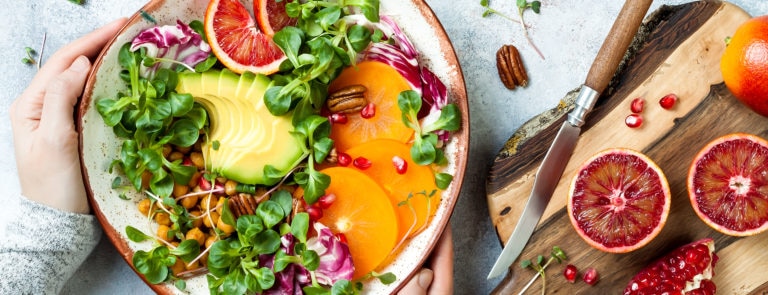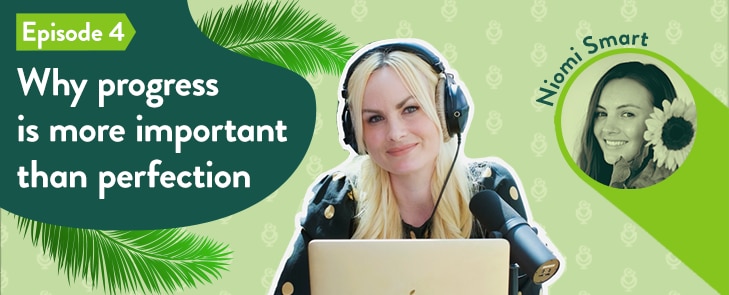15% off €35 OR 20% off €45
The benefits of a plant-based diet

Wondering what the difference between vegan or veggie diets and a plant-based diet are?
While all three are great ways of fuelling your body with more nutritious foods, they do have some distinct differences.
More and more people are looking at ways to incorporate vegetables, fruit and whole grains into their diet, yet aren’t necessarily ready to give up things like dairy or meat.
That’s where a plant-based diet comes in…
First of all, what is a plant-based diet?
Plant-based diets essentially see you getting the majority of your nutrition and sustenance purely from things that are grown on the earth, whether that’s fruit from trees, vegetables from plants or grains and pulses from crops.1
Unlike vegan or vegetarian diets, plant-based is flexible and does leave some room if you’d still like to occasionally eat meat, fish or dairy products.
Overall, switching to foods that are unprocessed and mainly grown on the earth are also thought to have many positive impacts on the body.
What are the benefits of following a plant-based diet?
Whether you’ve decided to switch up your diet for personal or moral reasons or you’re simply wondering why so many are now turning to plant-based foods, here we take look at the major health benefits of a plant-based diet:
-
It may help manage your weight
Switching to plant-based is a great way to eat plenty of foods that can help support your weight goals.
This includes fibre-filled veggies and whole grains which help your body stave off hunger pangs in between meals.
-
It contains antioxidants
A lot of plant-based produce is packed with antioxidants.
These are compounds that aid our bodies tackle free radicals that can damage our cells.
-
It supports your immune system
It’s no secret that fruit and vegetables are packed with vitamins and minerals.
Some of these, including vitamin A, C and E, are essential for supporting your immune system and propping up your body’s defences.2
-
It supports your heart
Studies show that those who follow a plant-based diet that’s packed with lots of veggies, legumes, fruit, whole grains and nuts are at a lower risk of developing heart disease.
That’s because those foods are rich in essential nutrients and healthy fats which can support the heart.
You’ll also be eating less unhealthy saturated fat by cutting out or minimising the amount of meat and dairy you consume.3
You also asked...
There’s not much to avoid when it comes to eating plants. If you are keen to make the switch, though, it’s important that you don’t bulk out your meals with things that contain lots of sugar or fat.
Like any diet, a plant-based one is all about balance. Eat plenty of healthy foods and have the occasional unhealthy item as a treat only.
It can be tricky going from eating every kind of food to just plants. Consequently, slowly transitioning into it may be the best way to successfully go plant-based.
Start by making your meals more about plants.
Swap out chicken for tofu, try using plant milk in your cereal, and only buy small amounts of meat or fish. If you’re reluctant to go completely vegetarian or vegan, buy free-range, organic or locally sourced dairy, meat, eggs or fish products where possible.
Niomi Smart: Why progress is so much more important than perfection
Sustainable living, being kinder to our planet and the correlation with living a plant-based life. In this relaxed chat we find out about Niomi Smart’s journey as a YouTuber and influencer. Talking in detail about:
- Social media and its impacts on wellbeing
- Becoming plant-based
- How progression is more important than perfection


Last updated: 13 June 2022



